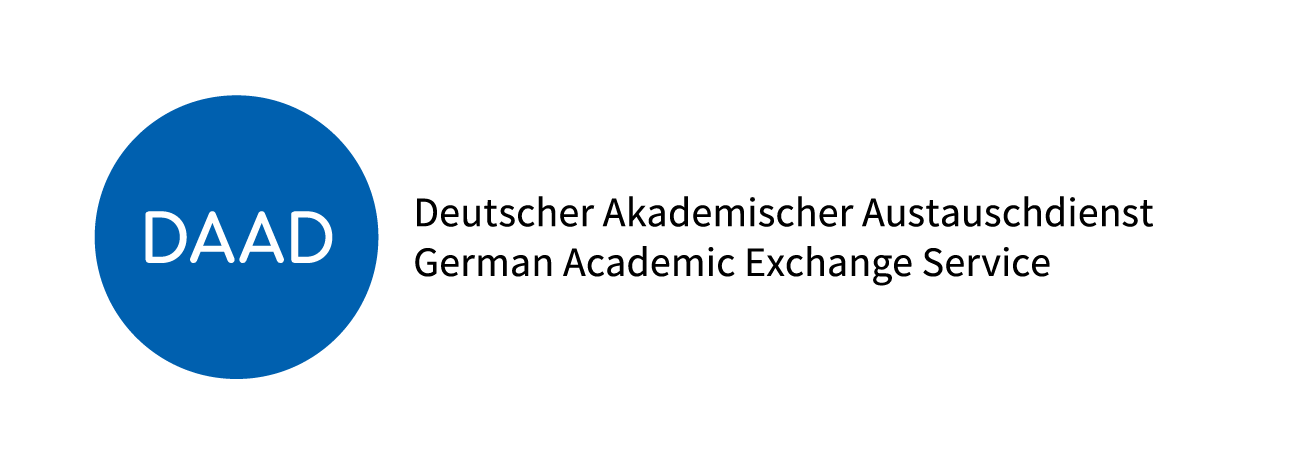
How Much Does it Cost to Study Abroad in Germany?
Find out everything you need to know about the costs associated with studying abroad in Germany and scholarship opportunities!

From iconic half-timbered houses and the mountainous terrain of the Black Forest to lively Bavarian beer halls during Oktoberfest, studying in Germany offers international students a diverse lifestyle with no shortage of exciting things to see and do.
Read on to find out how much it costs to study abroad in Germany!
Why study abroad in Germany?
- Reputable universities: Some of Europe’s greatest universities are based in Germany. Cities such as Berlin, Munich, Hamburg, Freiburg, and more offer international students access to top institutions in fields such as engineering, business, modern languages, and much more.
- High quality of life: Not only does Germany offer reputable universities and a high quality of education, but it also offers a fantastic quality of life for international students and foreigners alike.
- Diversity and inclusivity: Germany is a very diverse nation, and students can immerse themselves in a thriving international community as well as the local community.
- Scholarships: In addition to general study abroad scholarships and grants available through Go Overseas, the German Academic Exchange Service (also known as DAAD) offers a range of scholarship opportunities for undergraduates, graduate students, PhD candidates, and more who want to study abroad in Germany. More on that below!
Average tuition cost for a semester abroad in Germany
Tuition fees in Germany for international students are often free at public universities. However, students should anticipate administrative fees ranging from $100-$400 USD per semester.
There is an exception to the rule when it comes to universities in the state of Baden-Wuerttemberg - which charge $1500 USD per semester, and also the Technical University Munich which charges $2,100-$3,200 USD per semester. You can visit DAAD’s program database to see whether universities charge program fees or not.
Despite its affordability, public universities are known for excellent standards of multidisciplinary education and impactful research facilities. While private universities do exist in Germany, they don’t necessarily guarantee higher-quality education.
To take advantage of free tuition, you’ll need to enroll directly. If you choose to study abroad in Germany through a third-party provider. These programs may range from $7,000-$25,000 USD per semester.
Here are the key differences between the two options:
- Direct enrollment: This involves applying to the university directly. While this option is cheaper, you’ll need to independently organize other aspects of your application and logistics, such as your visa application, accommodation, insurance, and so on. While this is cost-effective, it requires thorough effort and research into planning.
- Third-party program: Third-party services tend to be more expensive, but often include visa support, housing, meals, pre-departure and in-country support, orientation, academic support, medical insurance, and more. This is beneficial for students who want a seamless transition and thorough support when studying abroad.
Average monthly cost of living in Germany

The cost of living in Germany typically ranges from around $700-$1200 USD including rent. If your accommodation is pre-arranged through your program, you can expect to be spending around $300-$600 USD per month.
However, the cost of living will vary according to your lifestyle and where you live. Larger cities such as Berlin and Munich are typically more expensive than smaller cities or towns.
Here are the most prominent factors to consider when calculating your monthly costs of living in Germany:
- Rent: The average rent for a shared apartment ranges from around $250-$550 USD in German cities.
- Transportation: If your university doesn’t include a transit pass in your semester fee, you can expect to pay around $50 USD per month.
- Food & groceries: Depending on your preferences and dietary requirements, monthly expenditure on food and groceries often ranges from $200-$275 USD per month.
- Restaurant meals: Besides food and groceries, you’ll want to dine at local eateries with friends. Meals at an inexpensive restaurant in Germany average around $16 USD, whereas fast-food meals cost around $5 USD.
- Museum tickets: Tickets to museum exhibits typically cost around $10-$16 USD. However, many core exhibitions offer free admission, such as the Jewish Museum in Berlin or the grounds of the Auschwitz-Birkenau Memorial.
- Domestic travel tickets: Traveling within Germany is fairly inexpensive. A flight from the south to the north - or Berlin to Munich - averages around $80 USD, whereas a coach could cost as little as $25 USD.
- Cinema tickets: Movie tickets typically cost around $13 USD, however, student discounts are available at theaters nationwide.
Other costs to consider
You’ll need to consider more costs other than tuition and program fees or groceries. Here are some of the other costs to consider when studying abroad in Germany:
- Airfare: Don’t forget to factor in airfare when considering your budget. A one-way flight from the US to Germany ranges from $260-$350 USD. You can reduce costs and book cheap flights by using flight comparison websites, keeping your dates flexible, booking on specific days of the week, and more.
- Travel insurance: While you’re likely to be provided health insurance while studying abroad, you should also consider purchasing travel insurance. Student insurance plans can range from $40-$120 USD per month depending on medical history and unique plans. World Nomads and Safety Wing are just two examples that provide extensive coverage for your travels abroad.
- Travel: You’ll likely want to see more of Germany than just your city or town while you’re there. A coach from Berlin to Frankfurt, for example, will take around 5 hours and only cost around $20 USD using platforms such as Flixbus. Booking the train can be cheap or expensive depending on how far in advance you plan your trip. You can use the DB Navigator app to help!
- Accommodation: The average room cost for a bed in a hostel dorm ranges from $15-$30 USD per night, but private rooms will cost upwards of $40 USD per night. These prices will be higher during festivals such as Oktoberfest.
- Cell phone plan: Choosing the right phone plan will optimize your study abroad adventure. International roaming can be expensive, so you may pick up a SIM card in-country, with Vodafone and O2 being popular options in Germany. When it comes to e-SIM, Airalo and Nomad are popular routes. Expect to pay around $30 USD per month depending on your provider and package.
Money-saving tips for studying in Germany

Although Germany isn't on the lowest end of the spectrum when it comes to living costs in Europe, there are many ways you can minimize expenditure abroad:
- Cook at home: While you’ll occasionally want to dine out with new friends, cooking at home and preparing your meals will reduce costs greatly. It seems more convenient to grab food while you’re on the go, but these can add up throughout your time abroad. Visit local food markets to stretch your budget as far as possible!
- Utilize student discounts: Student discounts are available whether you’re visiting restaurants, purchasing new tech, or booking transportation with your BahnCard. Transportation companies even offer semester cards for students in Germany. Keep your student ID card on you and apply for special travel cards such as the International Student Identity Card to make the most of discounts!
- Use an international bank card: Using international bank or credit cards can minimize transaction and withdrawal fees significantly. Students who are studying in Germany for longer than a year may also be eligible to open a local bank account. While these fees may not seem like much at first, they can add up, especially throughout your time abroad.
- Visit flea markets: Whether you’re studying classical literature and you need new books or you’re looking for thrifty vintage threads, flea markets are a great way to buy things for a fraction of their original price. Even if you don’t need anything, it’s a fun weekend activity!
- Enjoy the great outdoors! Germany is known for its soul-nourishing outdoor lifestyle. Whether you want to traverse its southern mountainous terrain, swim in tranquil lakes, or cycle through the dense Black Forest, nature lovers and fitness fanatics can find plenty to do in Germany’s awe-inspiring natural environment.
Read more: How to Budget for Study Abroad
Scholarships for studying in Germany
Students can apply for scholarships and grants to help finance their academic studies in Germany. Thousands of dollars go unclaimed yearly because many people don’t realize this is an option!
The German Academic Exchange Service (DAAD) offers a range of scholarships and grants for international students across various fields. Funding from DAAD can be used to cover costs for education and research, travel, living expenses, and more.
Read more: 50+ Scholarships & Grants for Study Abroad

Funding Opportunities to Study in Germany Through DAAD
The German Academic Exchange Service, known by its acronym DAAD in German, is an organization that offers various scholarships and research grants to study in Germany for all academic levels and fields. If you've ever considered studying in Germany, check out the informational page DAAD and Go Overseas have created together to provide comprehensive overview on studying in Germany.
Start planning your study abroad adventure in Germany!

Studying abroad in Germany provides life-changing opportunities for both personal and academic growth. Through its generous funding opportunities and low tuition costs at world-class universities, studying abroad in Germany is not only great for your education but for your wallet, too!
Learn more about studying abroad in Germany






